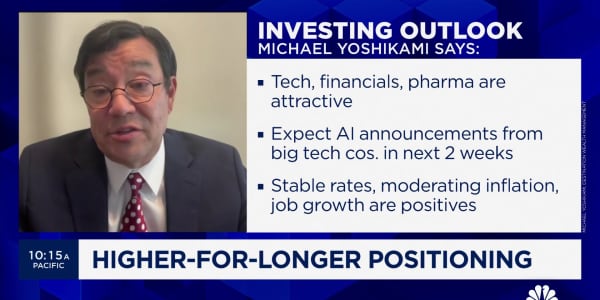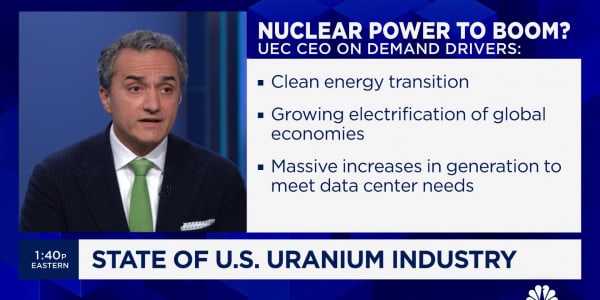Facing lingering questions about the oversight and profitability of their businesses, Morgan Stanley and JPMorgan Chase have taken steps to sell their commodity divisions, say people familiar with the matter.
The firms are holding discussions with a range of offshore buyers who wouldn't be subject to relatively stringent U.S. banking rules.
Morgan Stanley held detailed discussions with China International United Petroleum & Chemicals—otherwise known as Unipec—as recently as September about a possible purchase of its commodities-trading division, according to people with knowledge of the talks.
The division includes a large derivatives-trading team, an energy infrastructure unit, and a large stake in an oil-tanker company. Those talks appear to have hit a wall, sources said, but discussions about other potential plans are ongoing.
(Watch: )
JPMorgan, meanwhile, is in discussions with a number of suitors to sell its own physical-commodities business, which includes everything from a metal-storage business to gas and power supply agreements, said people with knowledge of the process.
The bank has distributed a term sheet that reportedly valued its holdings at a combined $3.3 billion, and multiple confidentiality agreements have been signed with possible buyers, these source said. Those holdings include a number of unregulated, offshore private money managers, as well as the Brazilian bank BTG Pactual, sources said.
A dual challenge of regulatory investigations and potential rule changes are making owning physical commodities less practical for U.S. banks.

JPMorgan, for instance, is now under criminal investigation for the alleged manipulation of power prices in two regional markets, people with knowledge of the probes have said. THe bankpaid the Federal Energy Regulation Commission $410 million to settle the charges in late July.
(Read more: Energy hedges crushed despite 'screaming' market)
At the same time, Goldman Sachs has come under fire for its handling of a metal warehouse network it owns in Detroit, where waits for aluminum shipments have swelled to more than a year, pushing up delivery fees. (Goldman denies manipulating markets and has said that its warehouses are not immediately for sale.)
Meanwhile, the Federal Reserve is reviewing U.S. banks' rights to own physical commodities amid complaints that a legislative loophole gives Goldman and Morgan Stanley an unfair advantage.
Among other possibilities, the Fed is considering imposing a surcharge on bank commodities holdings linked to the amount of capital they require or risk they take, but no formal decisions have been made, said one person familiar with the matter.
(Read more: Why best and brightest are turning against Wall St.)
Banks have been awaiting a Senate Banking Committee hearing at which the Fed was expected to provide further guidance, but the planned hearing has been delayed this fall.
Market deterioration has also complicated matters. Since hitting its all-time high in July 2008, the benchmark Goldman Sachs Commodities index has dropped 57 percent, creating losses in some physical arenas and driving many of the banks' key institutional investors out of the asset class.
The problem has been keenly felt at Morgan Stanley, where commodity-unit revenue has sunk to its current levels of close to $1 billion from more than $3 billion when the GSCI was peaking, say people familiar with the matter.
Last year, Morgan officials held talks with the Qatar Investment Authority about taking a minority stake in the commodities business, people familiar with the talks have said. But the negotiations bogged down over issues of both price and the magnitude of Qatar's investment, say these people, and by the time Morgan was open to selling a majority stake in the business, its hand had been weakened by sagging revenues and key trader departures.
(Read more: This guy went from anonymity to scourge of Wall St.)
More recently, the bank held purchase talks with Unipec, the oil-trading division of the state-controlled China Petroleum & Chemical Corp., or Sinopec, about purchasing the commodities business, say these people.
But those talks, which seemed productive as recently as September, appear to have hit a wall, for reasons that weren't immediately clear, the sources said. Representatives of Unipec did not respond to a request for comment.
JPMorgan' s commodities team, which had hoped to have the basic contours of a deal in place by the end of the year, is holding talks with a variety of private investors as well as BTG, say the people familiar with the matter. A spokeswoman for the Brazilian bank declined to comment.
Ironically, any deal to sell the physical-commodities business to a foreign investor could result in the resale of some of those assets to one of JPMorgan's competitors.
(Read more: JPMorgan prepares to fight CFTC charges: Sources)
A private money manager like a sovereign-wealth fund might lack the interest and the expertise to manage a 10-year oil delivery contract with a major driller, for example—a reality that has prompted some private investors to approach Goldman Sachs about taking on some of those credit agreements in the wake of a JPMorgan deal.
"Some of our clients are looking at their portfolio and some of our clients can potentially ask us for help on looking at some of the long-dated derivatives," Goldman president Gary Cohn said in a recent Bloomberg TV interview. "We're more than happy to help facilitate our clients, but we're not going to buy the business directly from JPMorgan."
A JPMorgan spokesman declined to comment.
—By CNBC's Kate Kelly. Follow her on Twitter @KateKellyCNBC.






